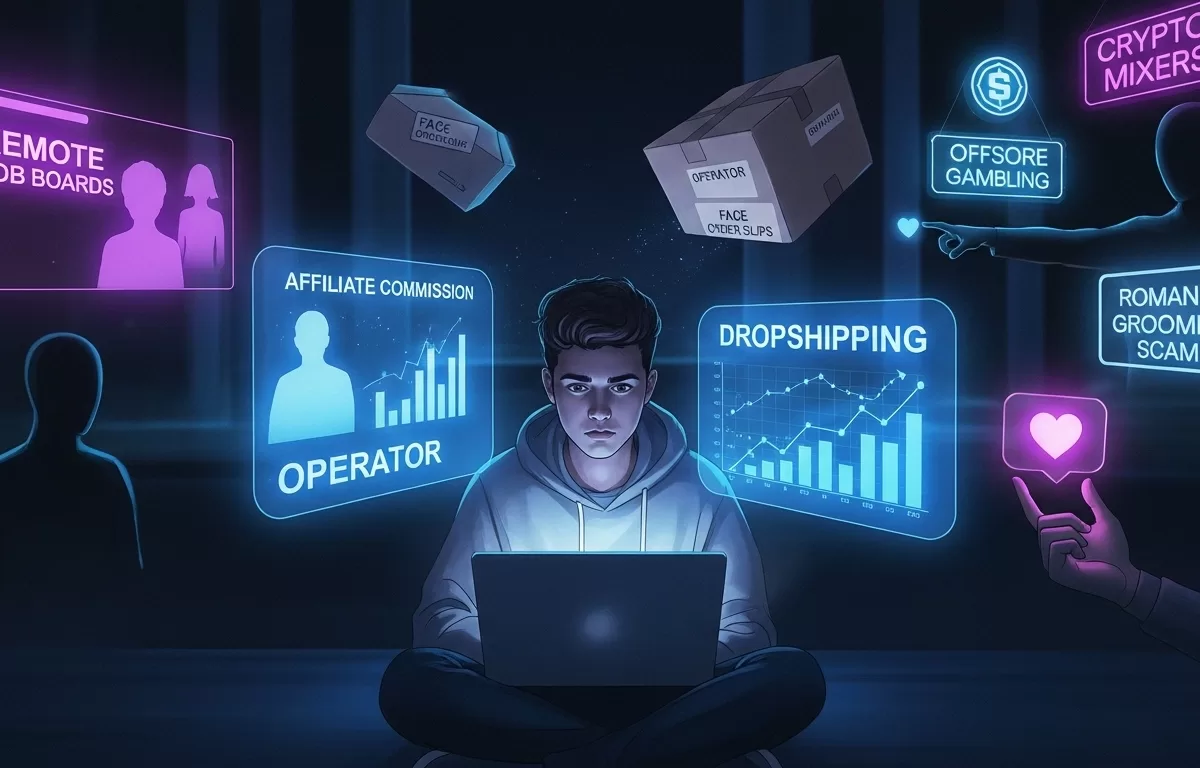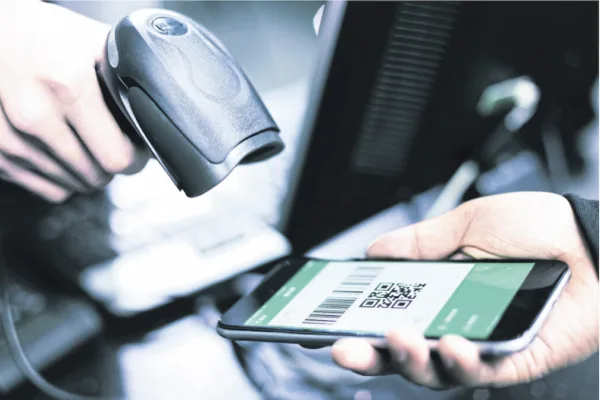Rael’s story — a warning you’ll feel in your bones

Rael thought he had found the perfect side gig: “payment processor for e-commerce sellers.” His job was simple — receive payments, send them on, and keep a small cut.
Two months later, his bank froze his account. Dozens of deposits and one large transfer had no clear source. He had no contract, no invoices, and no defense.
Rael had walked into a money laundering trap. Criminals had used his account to clean dirty money. At first, it didn’t feel like crime — just busy work. But that’s the trick: scammers make illegal work look ordinary.
How small steps turn into big trouble
The pattern is common:
- Approach — You see an ad: “Help process payments.”
- Onboarding — They want your bank or e-wallet. Job title sounds vague.
- Testing — Small deposits arrive. You forward them. No invoices.
- Escalation — Larger transfers. More secrecy.
- Detection — Bank flags the account. You can’t explain.
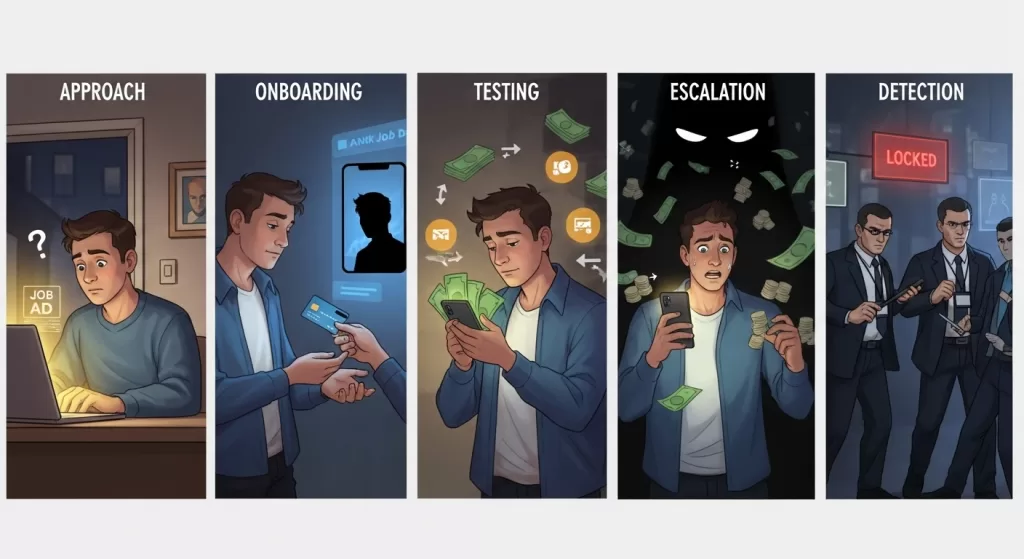
These steps match the laundering process: placement → layering → integration. Most people get stuck in the layering stage, where their account hides the money’s source.
Where the schemes hide — common platforms and roles
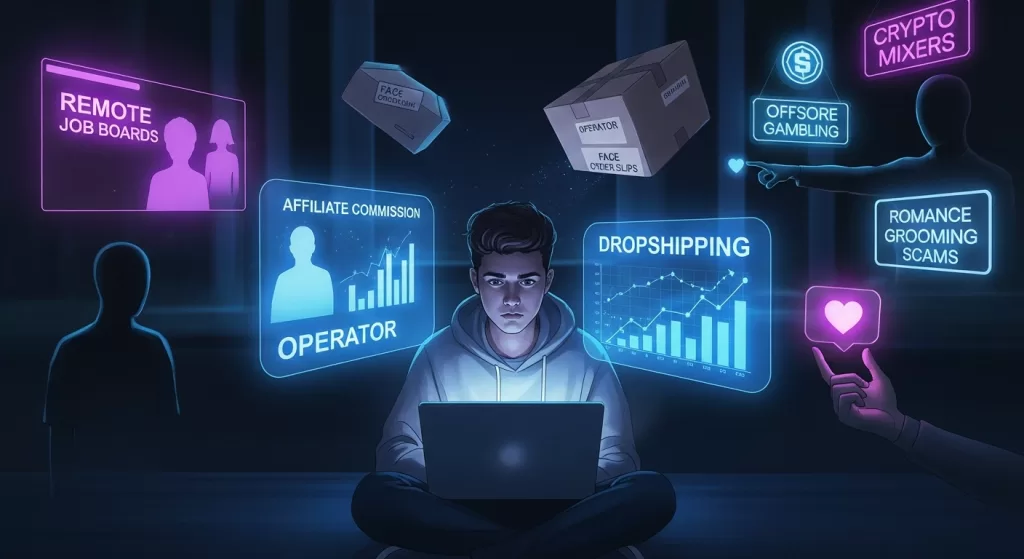
This isn’t confined to one corner of the web. Watch these places:
- Remote job boards with vague payment roles (titles: “payment processor,” “back-office operator”)
- Affiliate programs promising unusually high commissions
- Drop shipping groups that ask you to process “test orders”
- Unregulated crypto platforms or mixers
- Offshore online gambling or betting sites pushed by influencers
- Peer-to-peer lending schemes with anonymous borrower profiles
- Romance-style grooming where “a favor” becomes repeated fund movement
If you process money for strangers — especially using your personal account — you’re walking into a high-risk situation.
Spot the red flags — a checklist you can run in 10 seconds
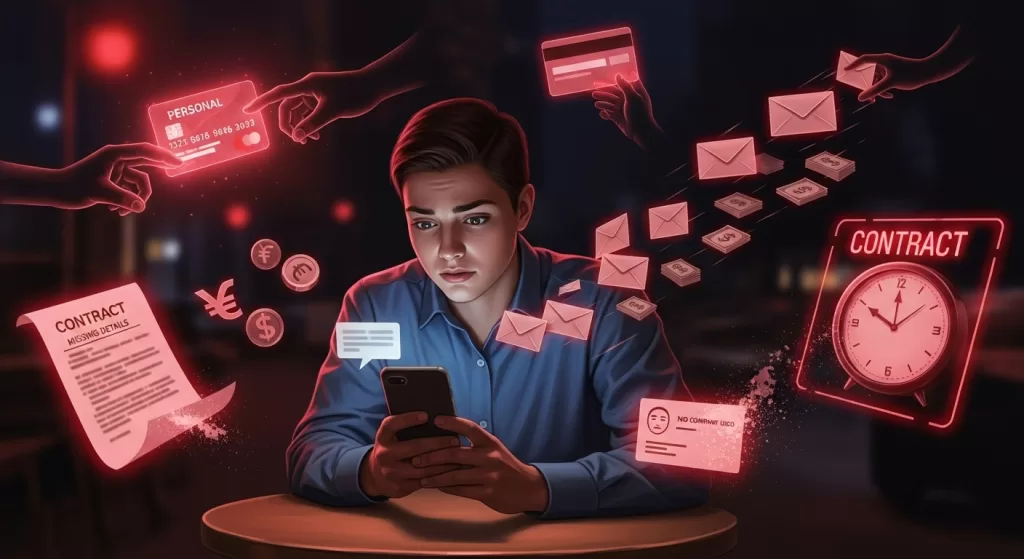
If two or more of these apply, treat the offer as high risk:
- They want to use your personal bank/e-wallet
- Many small deposits from unknown senders
- Vague job description; no real product or client
- Secretive or urgent instructions
- Asked to cover fees or losses
- Money routed offshore
- No company registration, no invoices
Two or more red flags? Walk away.
Philippine law & what authorities look for
The Bangko Sentral ng Pilipinas (BSP) and the Anti-Money Laundering Council (AMLC) require banks to report suspicious activity within five days. Unusual patterns — like many small deposits — can trigger account freezes.
Rules are getting stricter. Large transactions and hidden transfers are harder to pull off.
Protect yourself with paperwork
Ask these questions before saying “yes”:
- Who is the customer?
- What are the goods or services?
- Why use my personal account?
- Can I see invoices or contracts?
- Where will the funds end up?
- Who pays taxes and handles chargebacks?
If they avoid these questions, that’s your answer: no.
Your contract should cover:
- Legal names and registrations
- Clear payment flow
- Commission rate and schedule
- Invoices and receipts required
- Termination and dispute rules
Always keep records:
Emails, chats, bank slips, invoices, screenshots. Store them safely.
Already involved? Do these six things immediately
- Stop forwarding funds. Do that now.
- Don’t delete messages. Preserve all communications and receipts.
- Inform your bank discreetly. Ask about account-freezing procedures.
- Report suspicious offers to AMLC (they have reporting channels). Anti Money Laundering Council
- Seek counsel — a lawyer experienced in financial crimes can help you craft a defense and liaise with authorities.
- Cooperate with investigators but do so with legal advice; “I didn’t know” helps less than you might think — evidence helps more.
These moves won’t guarantee an easy ride, but following them drastically improves your position.
How investigators think — a quick primer so you can prepare defensibly
Investigators look for patterns more than one-off mistakes. They’ll ask:
- Where did the funds originate? (IP addresses, bank names, sender account names)
- What was the business purpose? (Are there matching invoices, delivery confirmations?)
- Did you know how the money arrived and where it ended up? (Can you prove you didn’t?)
- Were you paid a commission that made the relationship profitable for you? (That matters.)
So, from a defensive POV: collect proof of business purpose, show that you asked the right questions, and have written agreements. Don’t be dramatic; be factual.
Real signals from the industry (why this is not just paranoia)
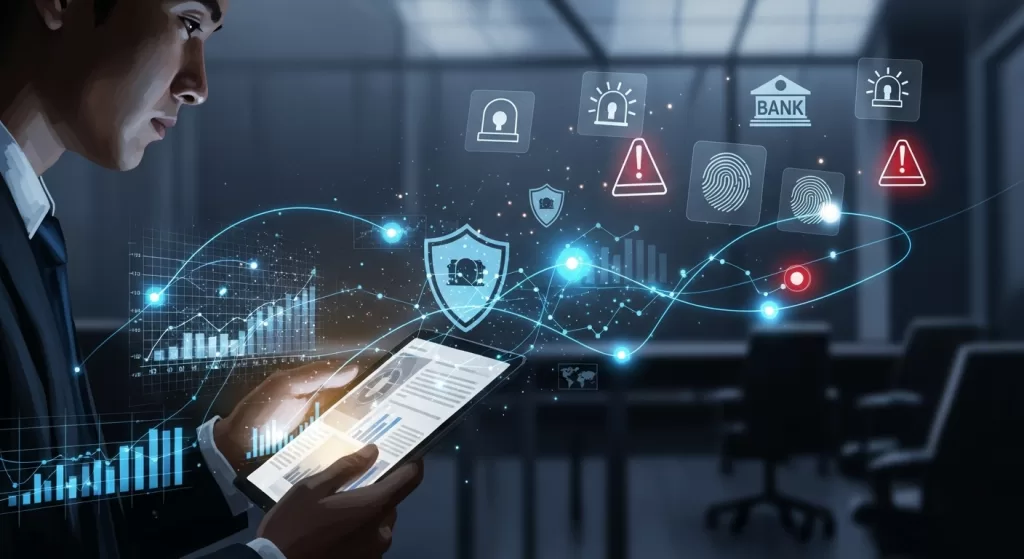
The local fintech press has been flagging fraud and tighter regulation across the payments landscape — from AI-driven fraud to the SEC and regulators calling out suspicious schemes. Fintech News Philippines publishes frequent updates on changing payment rules and fraud trends in the local scene, which shows how fast the risk environment evolves.
That doesn’t mean every remote job is sketchy. But the environment is shifting: platforms, regulators, and banks are all more vigilant — which is both good for systemic integrity and bad news for anyone relying on casual payment flows without documentation.
FAQ
Can I be charged if I didn’t know?
Yes. Ignorance doesn’t protect you. Evidence does.
Is dropshipping always risky?
No. It’s risky only if you process payments without proof of real products.
How do I report a suspicious job?
Save proof, tell your bank, and report to AMLC.
Should I hire a lawyer?
Yes, if money already passed through your account.
Conclusion — small habits = big protection
Criminals want easy targets. Don’t be one.
Print this checklist:
- Never use personal accounts for client money
- Always ask for names, invoices, and contracts
- Walk away if red flags show
- If trapped, save evidence and get help
Simple habits stop complex scams.




